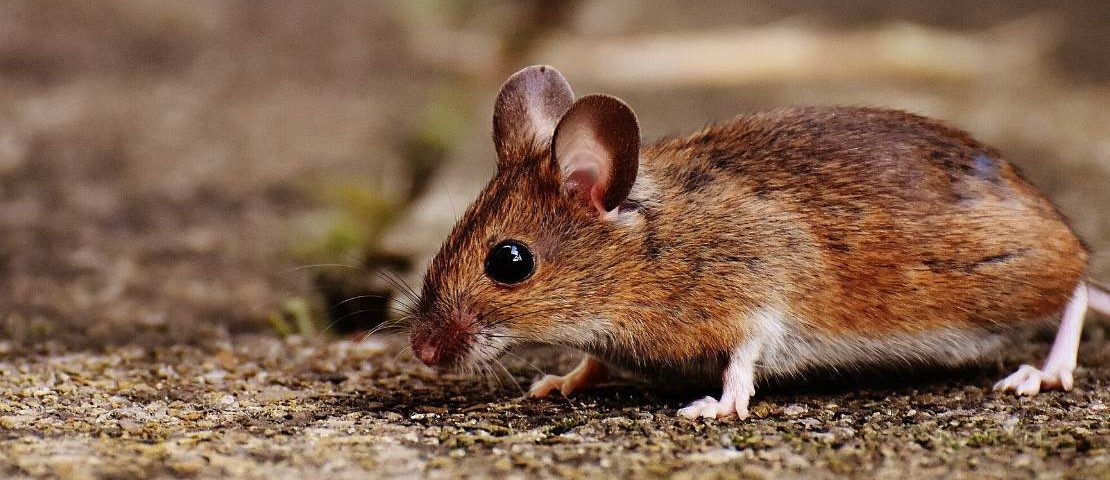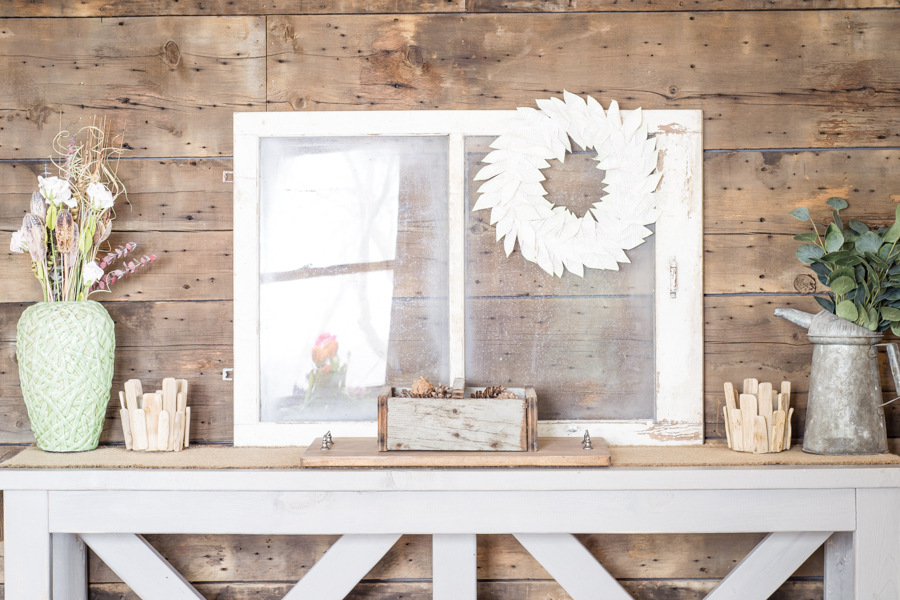Household Pests

Garage Organization Tips
August 26, 2022
Pest Prevention Tips
February 22, 2023How to Keep Household Pests Away
Pest: “A destructive insect or another animal that attacks crops, food, livestock, etc.”. These annoying critters come in all shapes and sizes, ranging from tiny little ants all the way up to giant raccoons. What do they all have in common? They are a nuisance to our home and family members. Household pests can get into your food, your cupboards, between your walls, underneath your floorboards and deck, etc. Pests have so many unbelievably good hiding spots to live in and most of the time we don’t even know they are there. Sadly, many of these pests have destructive qualities that can badger our homes… and our sanity. The worst part is that even if your home is squeaky clean from top to bottom, pests can still make their way in.
However, there are a few simple ways to keep these home invaders at bay. Read on for our top tips on how to keep household pests away from your home.
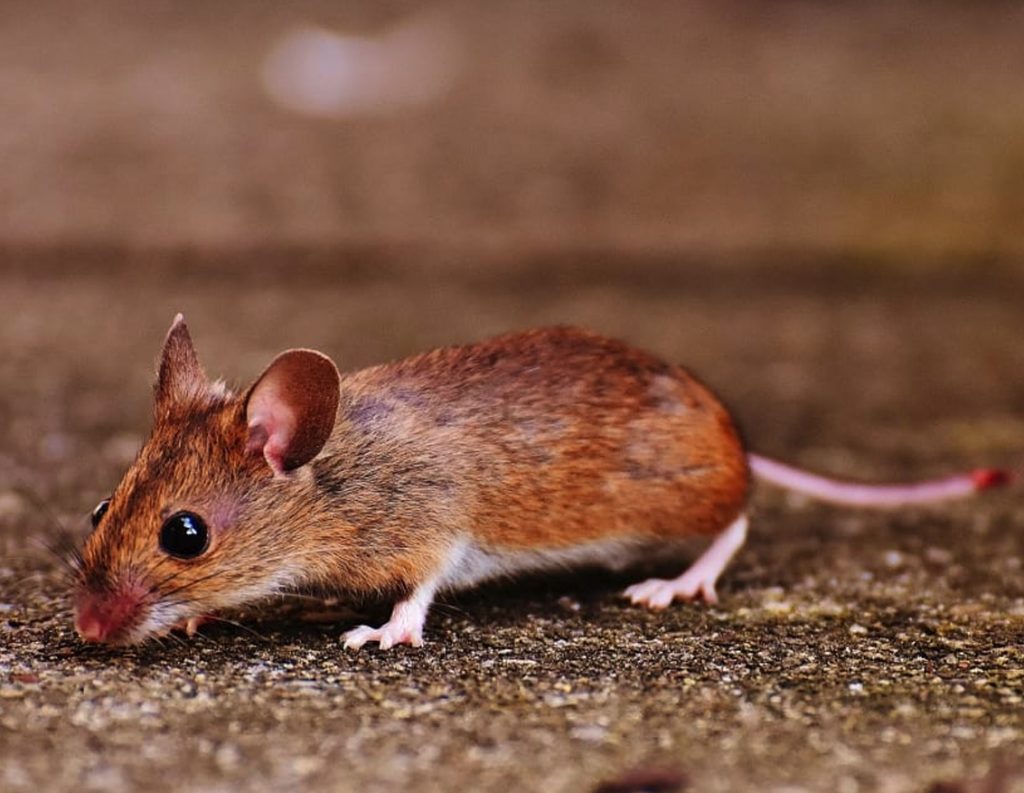
Mice
At some point in time, most of us have had a mouse in our house. Though these little critters look cute and innocent, they have destructive qualities to them that can contaminate your food as well as chew and destroy. Household pests can enter your home virtually anywhere due to their ability to climb and squeeze their bodies through the tiniest of holes.
HOW TO AVOID MICE:
• Store your household food in rodent-proof containers. This goes for any outdoor food as well such as birdseed
• Always put away uneaten food
• Store your garbage in heavy-duty rodent-proof bins
• Dispose of any fallen fruit in your yard from trees
• Fill any holes in your foundation or near your eaves
• Plant peppermint in your garden or in planters around your home. Mice hate the smell of it
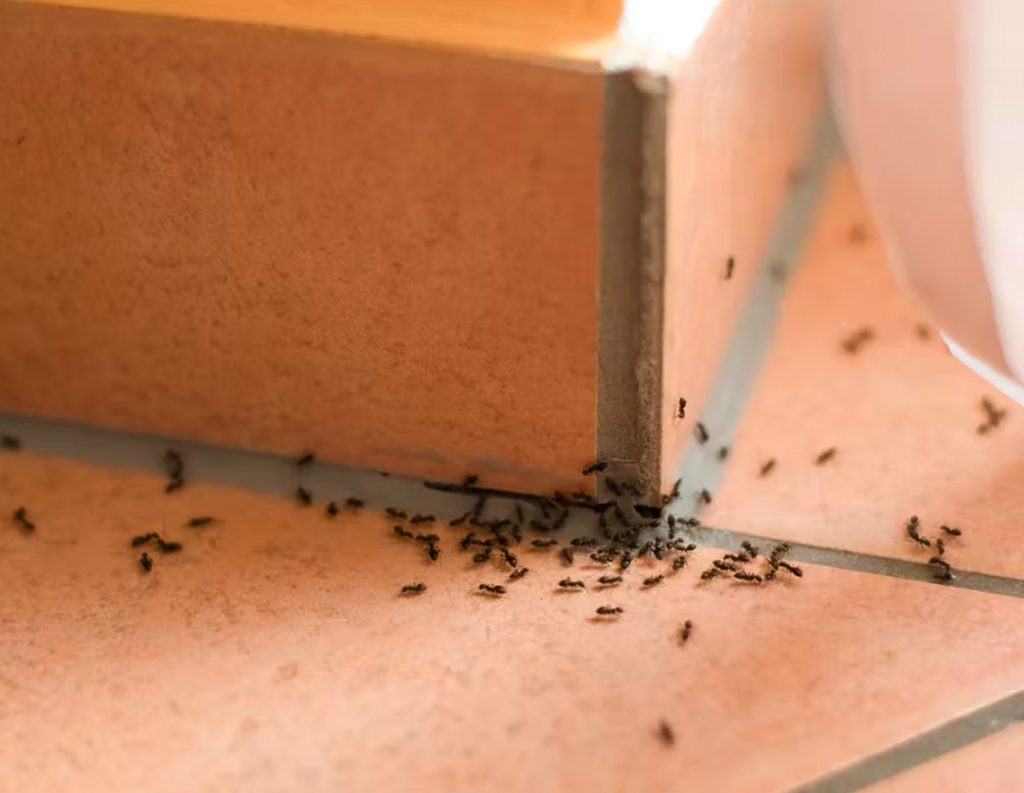
Ants
Ants are arguably the most common household pest in any home. These tiny insects are quick and nimble, making them tough to squish. Ants can cause damage to your property as well as contaminate your food. There are many different types of ants, but for the most part, they can all be avoided by using similar tips and techniques.
HOW TO AVOID ANTS:
• Take away any stagnant water that may be in our around your home
• Trim any long branches or plant limbs that are near your house. Ants and other insects like to crawl along these branches for easy access to your home
• Fill in any cracks or openings in your walls or in the foundation
• Do not pile firewood close to your house
• Sprinkle cinnamon or peppermint oil near entrances to your home.
• Purchase ant traps and place them in high ant traffic areas. Be sure to keep them away from pets or children
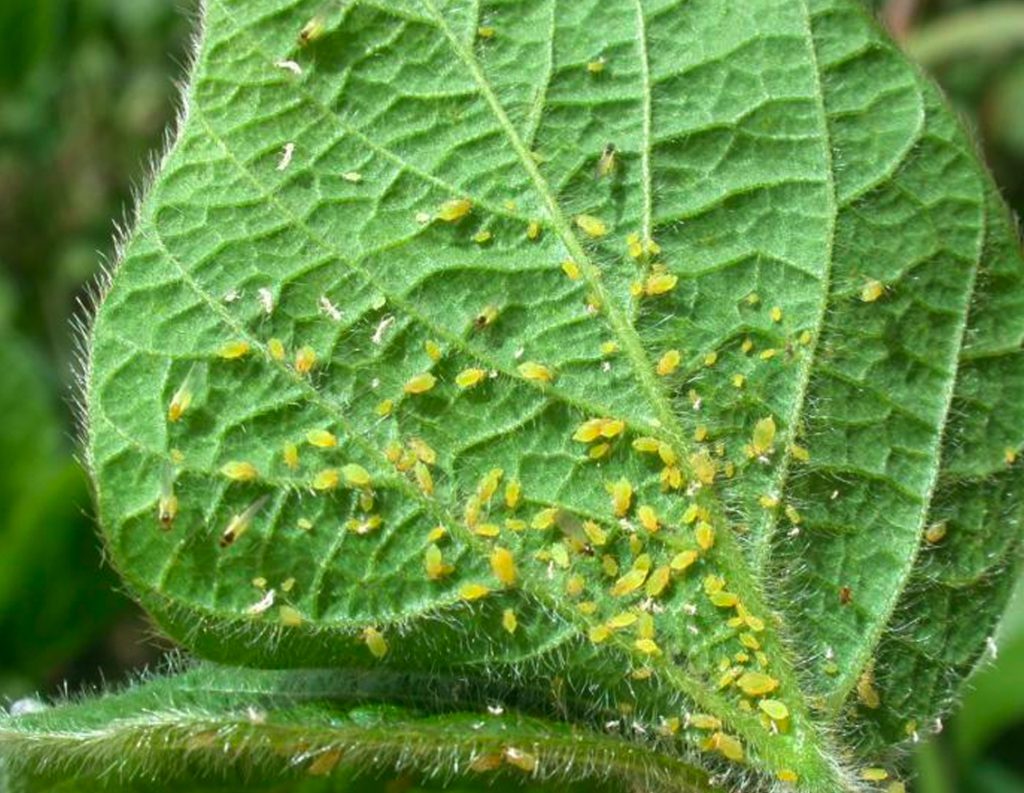
Aphids
If you are a plant lover, then you have most likely heard of these pesky insects. Aphids are tiny, soft-bodied bugs that feed on plant leaves and sap, sucking their nutrients and eventually killing your plants. They can be difficult to get rid of once they have infested your plant, but luckily, there are a few easy ways to avoid them altogether. If its too late and your plants have been infested, you can try spraying them with soap and water, neem oil or other essential oils. For more information on controlling an aphid outbreak, check out this link.
HOW TO AVOID APHIDS:
• Regularly check on your plant’s leaves and stems for these tiny insects. They like to congregate on the underside of leaves, so be sure to check underneath
• Are ants nearby? Ants like to follow aphids to feed on the honeydew they produce. If you see ants near your plants, you may have an aphid infestation on the rise
• Plant onions, garlic and chives nearby. Aphids hate the smell of these vegetables
• Don’t use too much fertilizer. These insects love to feed on plants with higher nitrogen levels

Raccoons
Raccoons are another one of those cute, furry pests who stare at you with their dopey eyes and look so sweet and innocent. Don’t let their cuteness fool you, these pests can be one of the most destructive of all! These feisty little night dwellers can climb, jump and even swim. Their thumbs make breaking into your secure trash bins a breeze and they are happy to eat whatever you leave out.
HOW TO AVOID RACCOONS:
• Protect your trash bins. If you have trash outdoors, make sure your bins have been tightly secured using bungee cords or a locking mechanism
• Limit their hiding places. Raccoons love to hang out in sheds, under decks, or even in your chimney. You can deter them from these hiding places by placing barricades
• Motion detected sprinklers and noise-makers can scare these critters away
• Put a fence around your garden
• Plant prickly squash or pumpkin vines
• Remove any fallen fruit or food scraps from your yard
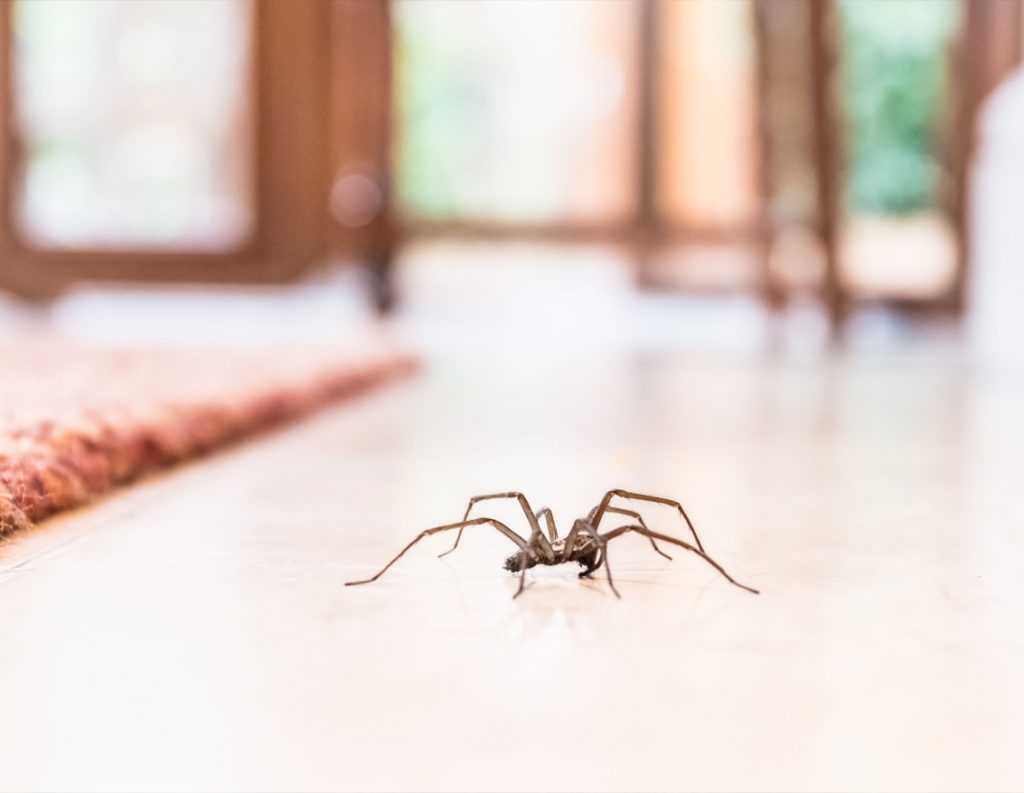
Spiders
Perhaps the scariest-looking pest of all is these 8-legged pests. They are extremely quick and tough to catch. Spiders can easily fit into the smallest of cracks and have a tendency to “vanish” into thin air. These pests aren’t as destructive as the rest, and in fact, they are sometimes beneficial. Spiders often help control other household pests, however, they do create unsightly webs. They are also not pleasant to look at, so you most likely don’t want them scurrying throughout your home.
HOW TO AVOID SPIDERS:
• Seal cracks around your house with caulking
• Make sure that your windows and doors are properly sealed or screened
• Pile your firewood away from the house
• Check any boxes that were stored in attics, basements or garages for spiders and nests
• Spray peppermint oil or vinegar around your home
• Regularly take your recycling out
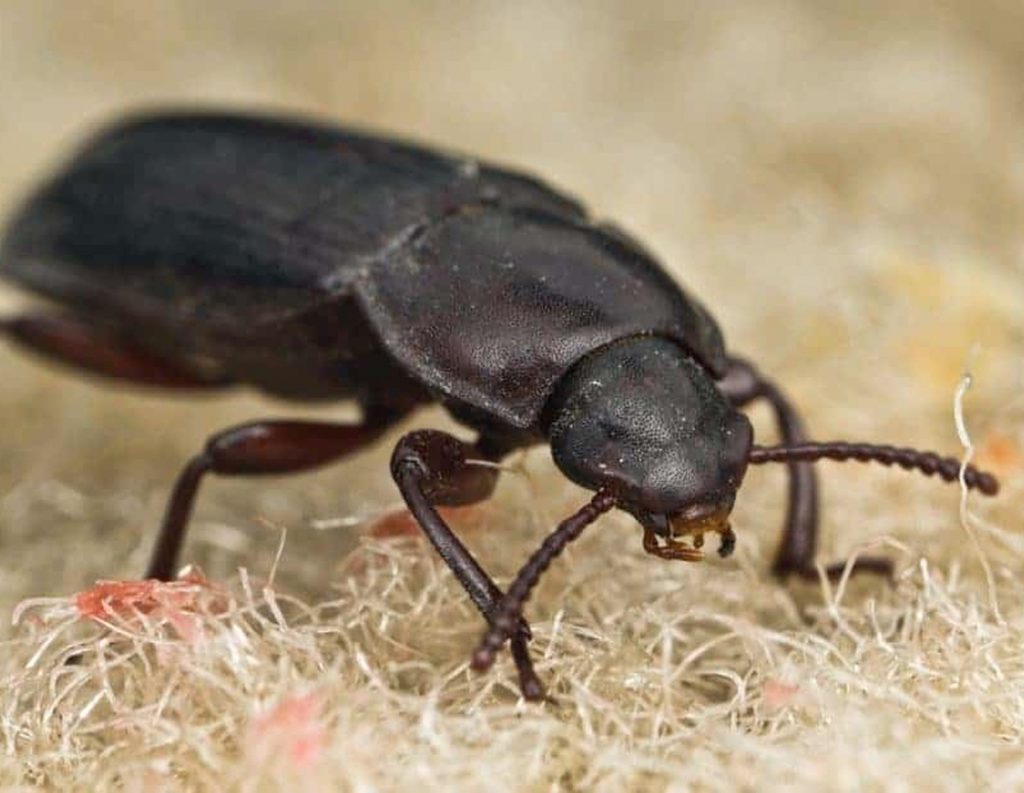
Beetles
There are many different types of beetles, but for the most part, they are all very similar in what they like and don’t like. Beetles are typically difficult to kill and many can even fly, which makes them great escape artists. Normally you will see beetles in your home in the winter as they are trying to find shelter during the colder months, however, you may still find them crawling indoors in the spring and summer months as well.
HOW TO AVOID BEETLES:
• Store your dried goods in airtight containers
• Inspect all wooden items before bringing them into your home
• Limit the amount of moisture such as stagnant water
• Caulk around your windows, doors and vent seals
• Spray peppermint oil around your home
• Sprinkle diatomaceous earth around the entrances to your home as well as along the foundation seam
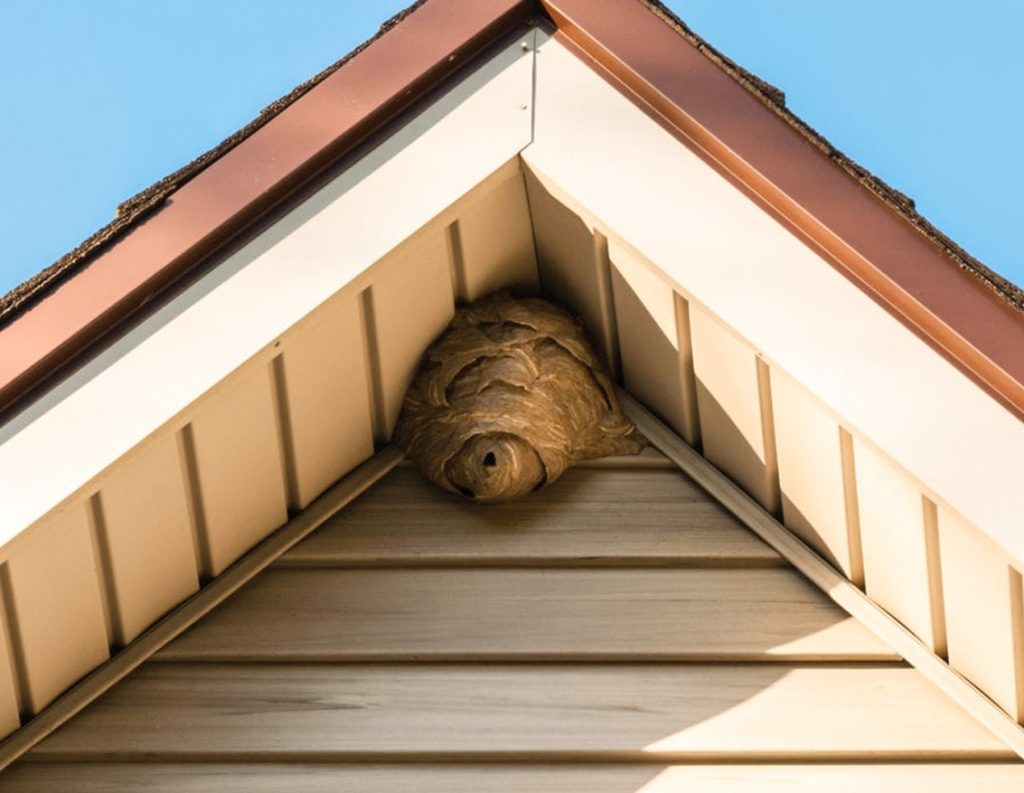
Wasps & Hornets
Due to their aggressive habits, hornets and wasps get a very bad reputation as one of the worst possible home invaders. These flying insects have a tendency to leave nasty stings on anybody who crosses their path. Because of this, no one wants them around their home. Even though these pests can actually have a positive impact on controlling other household pests and help to maintain a healthy eco-system.
HOW TO AVOID WASPS & HORNETS:
• Seal all cracks and small entry points to your home
• Keep compost and other outdoor food far away from the house
• Avoid wearing perfumes or colourful floral patterns as these can attract wasps and hornets
• Try not to swat at these flying pests as it can trigger their stress hormone causing them to sting you
• Place wasp-repelling plants near your home. Plants such as geraniums, basil and mint
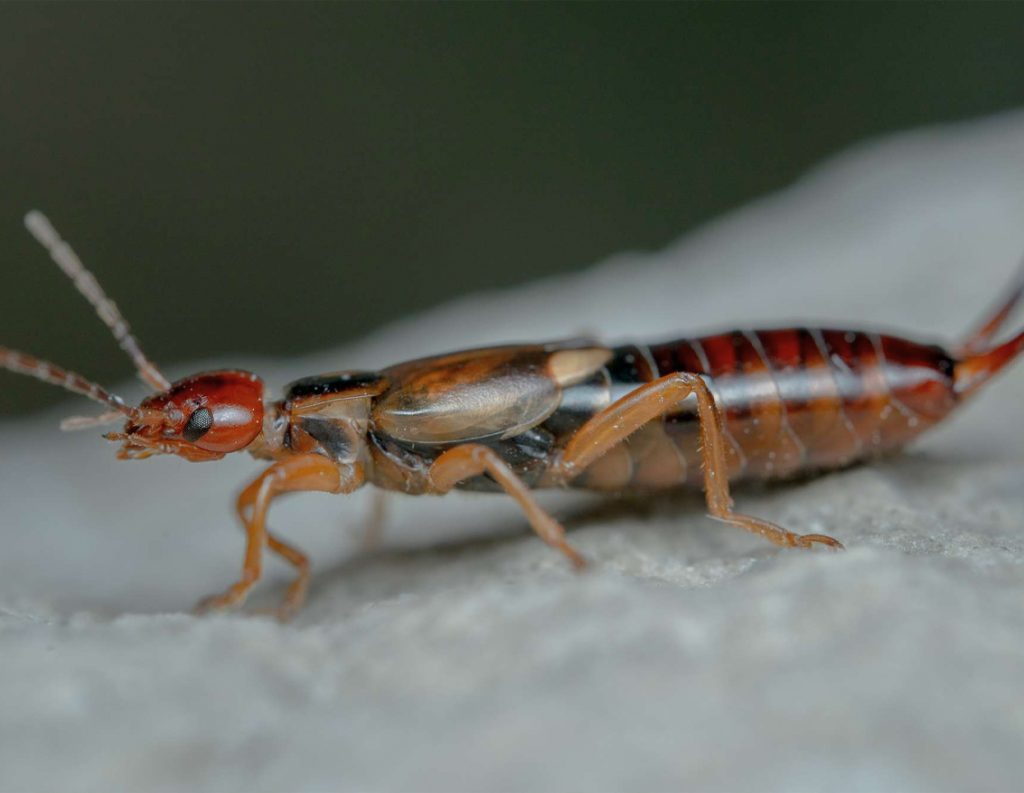
Earwigs
Contrary to common belief, earwigs do not burrow in your ears. In fact, they want little to do with humans at all. They are, however, creepy little insects that scurry across your basement floor and commonly freak us out. Earwigs pose little threat to humans, but they do enjoy our plants.
HOW TO AVOID EARWIGS:
• Earwigs love moisture, so be sure to check your gutters and downspouts to make sure they are draining outwards and away from your foundation
• Schedule your sprinklers to go off in the mornings so your yard can dry out during the rest of the day
• Set up an outdoor light away from your home to attract these household pests to the light source that isn’t attached to your home
• Repair any screens or vents with holes
• Keep any mulch and dead leaves away from your home’s foundation
• Remove any damp and shady areas near your home
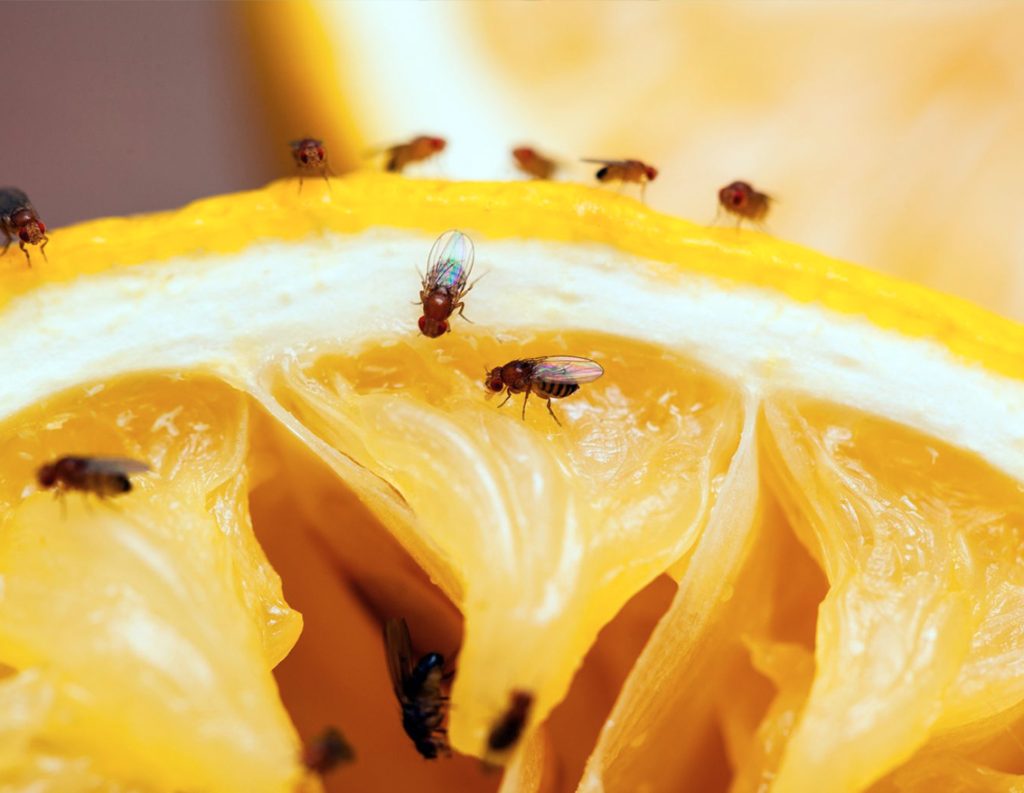
Fruit Flies
These tiny little winged insects can be incredibly annoying. Fruit flies seemingly appear out of nowhere and can come in hordes. They not only feed on old fruit, but also alcoholic beverages such as beer, wine and liquors. Though they are fairly harmless, they can spread bacteria easily and can be tough to control because of how rapidly they can reproduce. Female fruit flies are able to lay 500+ eggs that hatch only 24 hours later.
HOW TO AVOID FRUIT FLIES:
• Remove fruit and produce from the counter and store it in air-tight containers or in your fridge
• Keep your pipes and drains clean and clear of any food debris
• Clean any messy spills in your kitchen right away
• Wipe and clean counters regularly
• Make sure all trash bins are sealed and take your trash out regularly
• Clean sponges and dishcloths often
Feeling itchy after reading about all of these creepy, crawly pests? We know we are! These insects and rodents are some of the “ickiest” of creatures and we certainly don’t want them in our homes. In conclusion, we hope you were able to learn a few tips and tricks to keep these household pests at bay and help from destroying or contaminating your homes.
If it is too late to deter these pests from your home and you have an infestation, try setting traps or calling a pest control company to come and help you out. Sometimes, there is nothing more you can do than leave it to the professionals to take care of.
Our team hopes that you don’t have any pest problems in your home, but we understand that it happens and we have all been there. If you are looking for a new home altogether because of too many spiders… give us a call! We would love to help you find your dream home (preferably without any pests!).


